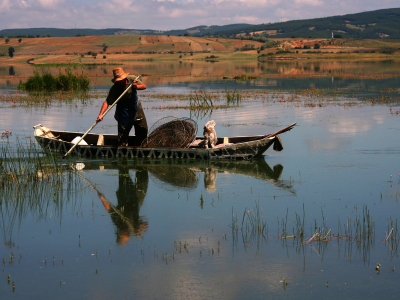
Europe and Central Asia Regional Overview of Food Security and Nutrition 2024
Managing water sustainably for improved food security and nutrition
This report provides the latest updates on hunger, food insecurity and malnutrition in Europe and Central Asia, including the cost and affordability of healthy diets. It also explores the central theme of water security, highlighting its critical connections to agriculture, food security and nutrition. While the region has made progress in reducing hunger and food insecurity (SDG Target 2.1), challenges remain in eliminating all forms of malnutrition (SDG Target 2.2).
Collections
- Country gender assessment series
- Digital agriculture
- Disaster risk reduction and management publication series
- Empowering smallholders and family farms series
- Transboundary animal diseases - Leaflets
Multimedia resources
Publications

Revitalizing the Albanian dairy sector in the context of food, energy and financial crises
11/2025
This report provides an in-depth analysis of Albania’s dairy sector, a critical component of the country’s agricultural economy. Despite recent improvements in farm productivity, the sector faces significant challenges including fragmented landownership, declining cattle numbers, and mounting production costs.

FAO Türkiye Newsletter, November 2025 – Issue #22
11/2025
The 22nd edition of the FAO-Türkiye Newsletter showcases key milestones in building resilient agrifood systems and safeguarding biodiversity. Featured stories include the Hepyerinden initiative connecting rural women’s cooperatives to national e-commerce markets, the Seeds of Resilience project supporting recovery in earthquake-affected regions, and regional efforts to restore forests and protect flamingos.

Antimicrobial use practices in the livestock sector in Ukraine
11/2025
The Understanding Antimicrobial Use in Food and Agriculture series is a compilation of country reports, each describing antimicrobial use (AMU) practices and awareness of antimicrobial resistance (AMR) in the livestock sector. The data presented in these reports was obtained through knowledge-attitudes-practices (KAP) field surveys conducted with farmers of priority livestock production systems, field veterinarians, veterinary pharmacies, and feed mills.

Antimicrobial use practices in the livestock sector in Georgia
11/2025
The Understanding Antimicrobial Use in Food and Agriculture series is a compilation of country reports, each describing antimicrobial use (AMU) practices and awareness of antimicrobial resistance (AMR) in the livestock sector. The data presented in these reports was obtained through knowledge-attitudes-practices (KAP) field surveys conducted with farmers of priority livestock production systems, field veterinarians, veterinary pharmacies, and feed mills.

Small ruminant value chains in the Republic of Moldova
11/2025
This report presents a comprehensive analysis of the small ruminant value chains in the Republic of Moldova, focusing on opportunities, challenges, and potential for growth. Small ruminant farming, primarily conducted by family farms, plays a vital role in rural livelihoods, contributing significantly to household income through meat, milk, and cheese production.
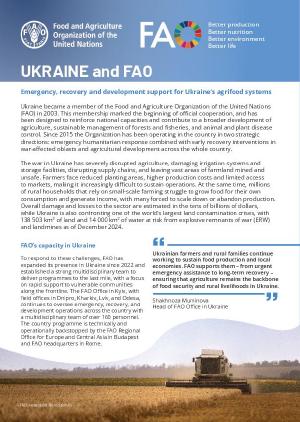
Emergency, recovery and development support for Ukraine’s agrifood systems
11/2025
The publication “Ukraine and FAO” provides an overview of the Food and Agriculture Organization of the United Nations (FAO) activities and achievements in Ukraine since the escalation of the war in 2022. It outlines how FAO, in partnership with the Government of Ukraine and international donors, supports farmers, rural households and institutions to safeguard food security, sustain production and rebuild livelihoods.
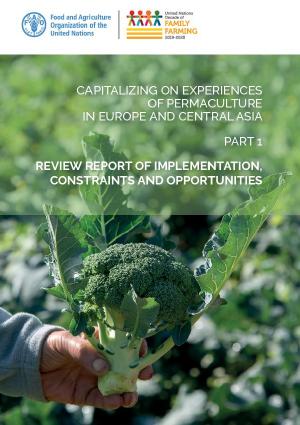
Capitalizing on experiences of permaculture in Europe and Central Asia
10/2025
This publication, "Capitalizing on experiences on permaculture in Europe and Central Asia: Review report of implementation, constraints, and opportunities", is the first part of a two part publication. The review report provides an in-depth look at the practice of permaculture in Europe and Central Asia, exploring its ethics and principles, as well as its benefits and application.
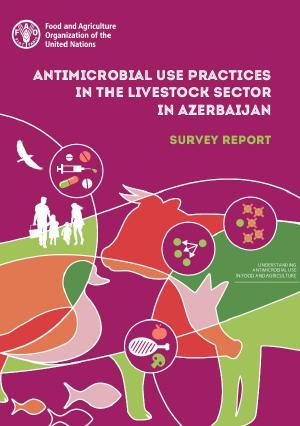
Antimicrobial use practices in the livestock sector in Azerbaijan
11/2025
The Understanding Antimicrobial Use in Food and Agriculture series is a compilation of country reports, each describing antimicrobial use (AMU) practices and awareness of antimicrobial resistance (AMR) in the livestock sector. The data presented in these reports was obtained through knowledge-attitudes-practices (KAP) field surveys conducted with farmers of priority livestock production systems, field veterinarians, veterinary pharmacies, and feed mills.
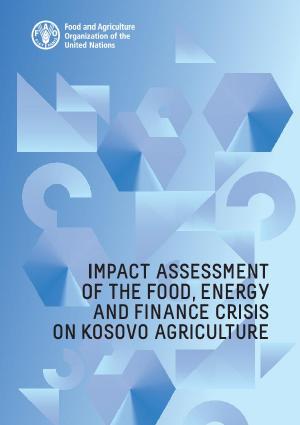
Impact assessment of the food, energy and finance crisis on Kosovo agriculture
11/2025
This report explores how the global food, energy, and financial crisis has affected Kosovo's agricultural sector, examines changes in production factors, input use, yields, profitability, food security, migration, and policy perceptions. Using surveys, analyses, and interviews, it offers insights and recommendations to strengthen resilience and sustainability.
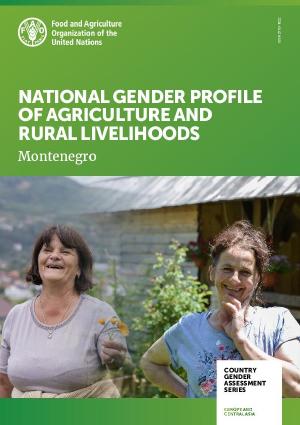
National gender profile of agriculture and rural livelihoods – Montenegro
10/2025
FAO’s first Country Gender Assessment for Montenegro analyses the situation of women and men in agriculture and rural development, identifying key gender gaps and opportunities. It provides a basis for integrating gender perspectives into FAO programmes and national policies for more inclusive, gender-responsive rural development.
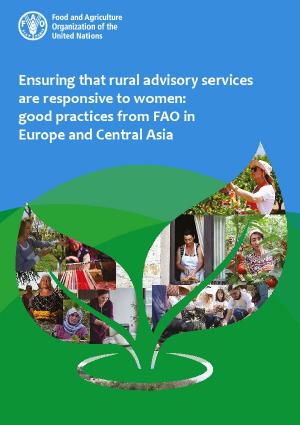
Ensuring that rural advisory services are responsive to women: good practices from FAO experiences in Europe and Central Asia
04/2024
This report builds upon FAO’s work promoting gender mainstreaming in extension and advisory services, cataloguing challenges and suggesting strategies for increasing the gender responsiveness of rural advisory services globally. The purpose of this review is to apply FAO’s accumulated knowledge about gender equality in the context of rural advisory services to assess the situation in the Europe and Central Asia region.
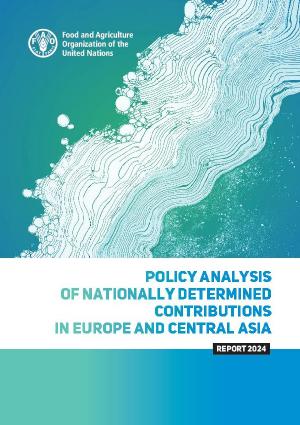
Policy analysis of nationally determined contributions in Europe and Central Asia
10/2025
This publication provides a comprehensive analysis of mitigation and adaptation actions for agrifood systems in the nationally determined contributions (NDCs) of Europe and Central Asia, focusing on progress since the latest NDC Policy Analysis Report from the Food and Agriculture Organization of the United Nations (FAO) in 2021.
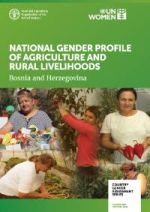
National gender profile of agriculture and rural livelihood – Bosnia and Herzegovina
09/2021
Despite the legal and policy foundation of BiH, gender considerations have only marginally been mainstreamed in state and entity policies on rural development or other sectors related to agriculture. At the state level, the Strategic Plan for Rural Development of Bosnia and Herzegovina (2018-2021) addresses support for women as a cross-cutting initiative but fails to fully mainstream gender. 2021, 94 p.
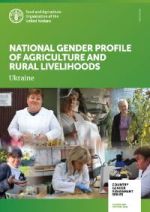
National gender profile of agriculture and rural livelihood – Ukraine, revised
06/2021
Gender equality is a key to eliminating poverty and hunger, as it has been demonstrated by the FAO throughout its research worldwide. As part of the FAO efforts on generating evidence and knowledge, and in compliance with the FAO Policy on Gender Equality, the purpose of the Country Gender Assessment for Ukraine is to contribute to the production of knowledge for better informed, targeted and gender sensitive actions in agriculture and rural development. 22/06/2021
![cc2041en_200[1]](/images/reulibraries/default-album/cc2041en_200-1-.jpg?sfvrsn=b4cd878d_1)
National gender profile of agriculture and rural livelihoods – The Republic of Azerbaijan
07/2022
This country gender assessment (CGA) for the Republic of Azerbaijan was undertaken as part of FAO and national commitments to promote gender equality while integrating a gender perspective into its operations. The resulting CGA report focuses on the intersections of gender, agriculture and rural development, and presents a snapshot of critical gender-based inequalities and their consequences for agricultural production and rural livelihoods in Azerbaijan.
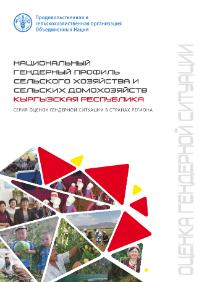
National Gender Profile of Agricultural and Rural Livelihoods – Kyrgyz Republic
06/2016
The purpose of this national gender profile is to collect and compile available data and information from diverse sources in order to shed light on gender disparities in rural settings and the status of rural women across a number of dimensions, with a focus on inequalities in agricultural employment. It aims to provide a picture of the types and degree of the main gender inequalities in agriculture and concerning rural livelihoods in rural Kyrgyzstan. 2016, 68 p.
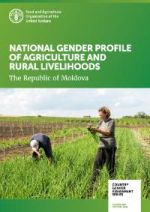
National gender profile of agriculture and rural livelihoods – The Republic of Moldova
05/2022
National gender profile of agriculture and rural livelihoods: the Republic of Moldova reflects FAO’s commitment to promoting gender equality, while integrating a gender perspective into its operations. The report focuses on the intersections of gender, agriculture and rural development, and presents a snapshot of critical gender-based inequalities and their consequences for agricultural production and rural livelihoods in the Republic of Moldova. The assessment includes recommendations.
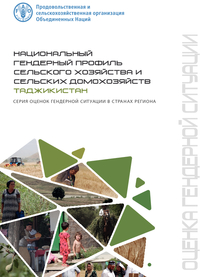
National Gender Profile of Agricultural and Rural Livelihoods – Republic of Tajikistan
06/2016
The purpose of the National Gender Profile of Agricultural and Rural Livelihoods for Tajikistan is to contribute to the production of knowledge for better informed, targeted and gender sensitive actions in agriculture and rural development. 2016, 56 p.
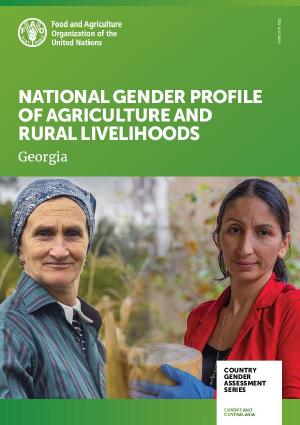
National gender profile of agriculture and rural livelihoods – Georgia
01/2025
The first Country Gender Assessment for Georgia was initiated in 2018, providing an overview of gender dynamics in agriculture and rural development. This comprehensive assessment reviews the progress made since 2018, highlighting critical gaps, new and persistent challenges and progress achieved.
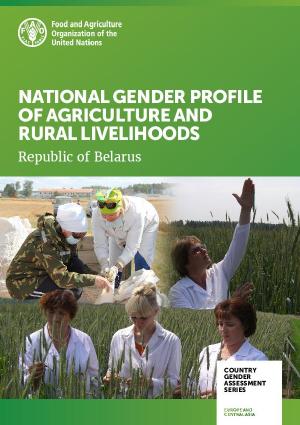
National gender profile of agriculture and rural livelihoods – Republic of Belarus
05/2025
This County Gender Assessment (CGA), the first by FAO for Belarus, identifies gender disparities observed across various dimensions of agriculture and rural livelihoods in the country. The aim of the CGA is to provide a framework and background information as a starting point for more targeted gender analysis in the context of future FAO project design and programming.
